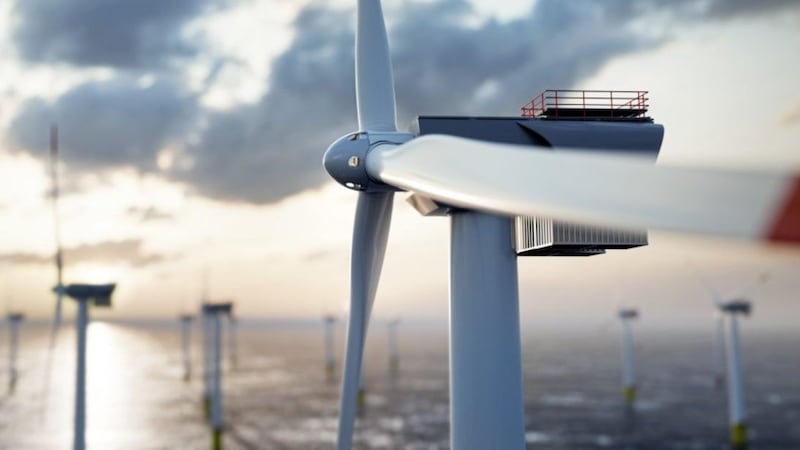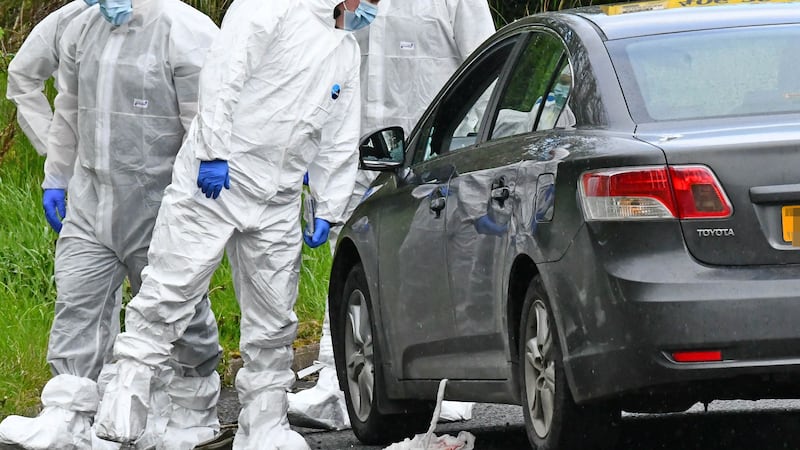POLITICAL instability and the lack of an executive is putting inward investment in Northern Ireland at risk, a committee of MPs has heard.
Nichola Hughes from Sustainable NI told the Northern Ireland Affairs Committee on Wednesday that not having ministers in place to make planning decisions on major green energy infrastructure projects represents “a big economic risk”.
While ministers currently remain in post in a caretaker capacity, significant, controversial or cross-departmental issues require executive approval.
Ms Hughes’ evidence was heard as part of the committee’s ongoing inquiry into economic effectiveness of UK Government policy to deliver investment in the north.
The committee also heard from Alexandra Brennan, co-ordinator, Northern Ireland Women's Budget Group and Paul Mac Flynn, co-director of the Nevin Economic Research Institute.
Mr Mac Flynn told MPs that the uncertainty over the Northern Ireland Protocol and the failure to form an executive was the biggest issue when it comes to potential investment.
He said foreign direct investors measure their investment over 10-15 years.
“You need certainty for that period of time, he said.
“I think there needs to be an effort that whatever arrangements we do come to, whether that’s regarding the subsidy scheme or whether that’s regarding particular arrangements for trade checks, that it has a believable certainty for a number of years.
“If there is no policy certainty… You don’t get the people who would come for that arrangement if they don’t think it’s going to stick.The uncertainty is the biggest issue.”
Sustainable NI director Nichola Hughes, told MPs that the uncertainty could deter potential investors in large scale renewable energy projects.
“Arguably renewable energy is one of the greatest economic opportunities for Northern Ireland in terms of off-shore wind,” she said.
“It is a tremendous opportunity for those companies placed to win those contracts, to make those investments.
“But just having ministers in place to make planning decisions to get those projects up and running, it’s a big economic risk and it just delays things.
“That uncertainty about planning decisions taking 24 months plus, just puts investors off.”
The committee also heard criticism of the Department for the Economy’s latest economic strategy document: ‘10X’.
Mr Mac Flynn told MPs: “I think I’ve been in this job long enough to have seen my fair share of economic strategies for Northern Ireland. The graphics and the pictures might change, but the story really doesn’t.”
Flagging up the north’s historic low levels of productivity, he said: “The big thing that is lacking is a very honest analysis of what has gone wrong with the Northern Ireland economy over the last 10 years.
“There seems to be no effort to feed that kind of analysis into a way forward.”
Alexandra Brennan of the NI Women’s Budget Group told the committee that women and some other ‘protected groups’ in the north had fallen between the cracks.
“A perfect example of this is when you look at the care sector, or just paid and unpaid care in general. It does suffer from a lack of investment and it should be central to any general investment plan,” she said.
“But the recent strategies to deal with investment and skills attainment in Northern Ireland.”



